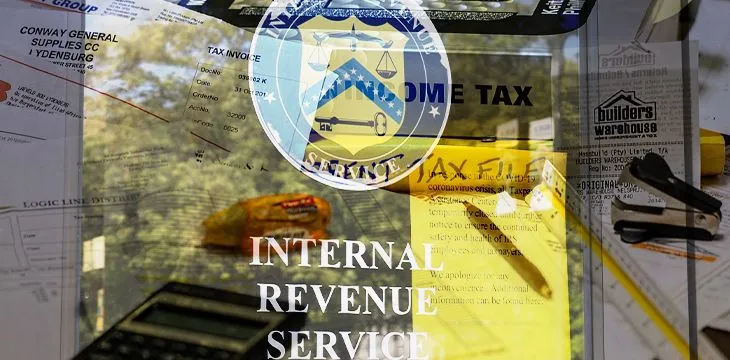|
Getting your Trinity Audio player ready...
|
The post originally appeared on the Unbounded Capital website and we republished with permission from its author, Dave Mullen-Muhr.
Recent activity from the IRS’s Criminal Investigations Division is demonstrating that the United States Department of Treasury was not bluffing when they indicated they would be improving their ability to crack down on the illegal use of virtual assets.
The recent news comes from a posting on the U.S. government’s contracting website which is seeking to contract private companies to de-anonymize transactions from digital currency projects which claim to provide anonymity. This new Cyber Crimes Cryptocurrency Initiative, specifically mentions so-called privacy coins like Monero (XRM), Zcash (ZEC), and Dash (DASH); “Layer 2 off-chain protocol networks” like BTC’s Lightning Network; “Side-Chains” like Ethereum’s Plasma; and blockchains integrating Schnorr signatures like Bitcoin Cash (BCH).
Despite numerous warnings from governmental and intergovernmental bodies like the U.S. Department of Treasury and the Financial Action Task Force (FATF) as well as empirical evidence that law enforcement can effectively use chain analysis to trace funds, many within digital currency maintain the position that the digital coins can remain anonymous and thus be used for extralegal ends. Privacy coins which seek anonymity through code and decentralized network architecture are the obvious low hanging fruit for regulators and law enforcement, but the inclusion of obfuscating layer 2 networks like BTC’s Lightning Network demonstrate that the Treasury Department is thinking clearly about the design and intention of the various cryptocurrency related technologies seeking to enable extralegality. Despite being pitched as a necessary “scaling solution,” Unbounded Capital has written extensively about how networks like the Lightning Network are primarily interested in removing Bitcoin’s inherent traceability and legal compliance, presumably to facilitate extralegal use cases ideologically popular amongst many in the crypto space.
In a Forbes post outlining these recent IRS developments, the claim was made that “cash also is an anonymous method of transacting used at scale every day.” This is a pervasive and incorrect understanding of cash. While it is true that small, casual cash transfers can be made without filing onerous anti money laundering/know your customer (AML/KYC) regulations, at sufficient quantities and value, even cash must be properly accounted for. Additionally, despite being functionally fungible, cash is differentiated with a serial number in order to facilitate tracing when financial crimes are being investigated. To claim that cash is anonymous misses the mark. Bitcoin is designed to mimic this property of paper cash but provide the added utility of being natively digital. Bitcoin’s digital nature allows for online payments to be easily made and for any subsequent analysis to be simplified. Analysis can come from individuals seeking to calculate tax obligations in an automated fashion or from law enforcement seeking to track the flow of funds between criminal networks.
nChain Chief Scientist Craig Wright has written extensively about this feature of Bitcoin and the confusion surrounding privacy and anonymity;
The use of pseudonymous names and a digital signature algorithm seems to have led to a lot of confusion, with many people believing that Bitcoin allows degrees of anonymity or even complete anonymity at scale for large transactions. They could not be further from the truth. The only reason Bitcoin maintains privacy and anonymity, at any level, is that the value of a transaction can be so low that nobody cares. The scenario is analogous to using cash: when you transfer small amounts of cash, or even an amount worth £100, nobody really cares outside of the people engaged in the transaction. On the other hand, if you want to transmit £15,000, there are forms to be submitted. The exchange of value using cash is not anonymous at all levels.
Like with cash, transactions made on Bitcoin are pseudonymous. But pseudonymity does not mean that transactions made on Bitcoin that are above the levels usually associated with cash can be made anonymously. Existing laws on the value of funding transactions including cash or digital cash have applied for many years, and continue to apply equally to digital currencies or ‘cryptocurrencies’. Liberty Reserve discovered it the hard way. The mantra of decentralisation does not save the system from the required rules; the application of anti-money laundering (AML) provisions remains in force whether you are using bitcoin or cash.
Because Bitcoin (today BSV) was designed to facilitate microtransactions which fall well below these thresholds, it has created a revolutionary financial network which is able to economically process transactions without requiring transaction participants to share unnecessary information which might jeopardizes their privacy. However, when transfers of micropayments accumulate above these thresholds or large payments are made outright, Bitcoin is similar to cash in that records must be kept to remain legally compliant.
The news about the IRS’s Cyber Crimes Cryptocurrency Initiative should not come as a shock to investors paying close attention to the recent legal developments or those who properly understand Bitcoin’s design and intention. For investors and technologists naively seeking anonymity and extralegality through the use of digital currency, a deeper investigation into how Bitcoin was designed and how it differs from subsequent cryptocurrency “innovations” like privacy coins and the Lightning Network would be warranted.
For a thorough examination of these topics, download and read our free ebook: Why Multicoin Capital and the Crypto Consensus are Wrong.

 08-31-2025
08-31-2025 





